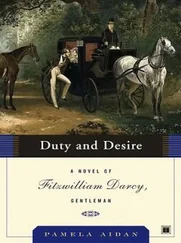K Parker - Devices and Desires
Здесь есть возможность читать онлайн «K Parker - Devices and Desires» весь текст электронной книги совершенно бесплатно (целиком полную версию без сокращений). В некоторых случаях можно слушать аудио, скачать через торрент в формате fb2 и присутствует краткое содержание. Жанр: Фэнтези, на английском языке. Описание произведения, (предисловие) а так же отзывы посетителей доступны на портале библиотеки ЛибКат.
- Название:Devices and Desires
- Автор:
- Жанр:
- Год:неизвестен
- ISBN:нет данных
- Рейтинг книги:3 / 5. Голосов: 1
-
Избранное:Добавить в избранное
- Отзывы:
-
Ваша оценка:
- 60
- 1
- 2
- 3
- 4
- 5
Devices and Desires: краткое содержание, описание и аннотация
Предлагаем к чтению аннотацию, описание, краткое содержание или предисловие (зависит от того, что написал сам автор книги «Devices and Desires»). Если вы не нашли необходимую информацию о книге — напишите в комментариях, мы постараемся отыскать её.
Devices and Desires — читать онлайн бесплатно полную книгу (весь текст) целиком
Ниже представлен текст книги, разбитый по страницам. Система сохранения места последней прочитанной страницы, позволяет с удобством читать онлайн бесплатно книгу «Devices and Desires», без необходимости каждый раз заново искать на чём Вы остановились. Поставьте закладку, и сможете в любой момент перейти на страницу, на которой закончили чтение.
Интервал:
Закладка:
Miel nodded. 'I see,' he said. 'Because the Vadani are really still our enemies.'
'Partly. And partly…' The captain looked past him, as if the stairs they'd just come down were impossibly fascinating. 'They say the Duchess is having an affair with Valens, and this is how they planned on getting Orsea out of the way.'
Miel was silent for a moment. Then he said: 'I think you'd better lock me up now. If you really believe all that, the least you can do is chain me to the wall. If I were you, I'd cut my throat right now.'
Not surprisingly, the captain didn't reply. He led the way into the ground-floor apartment, which had already been furnished with the Ducas furniture and effects. The book he'd been reading was on the lectern, open at the right place. The Perfect Mirror of the Chase; Jarnac's choice, from his own library. Right now, Miel decided, he really wasn't in the mood. He flipped it shut and sat down in the window-seat, with his back to the world and the war. On the table there was a stack of paper, his inkwell, pen, penknife, sand-shaker, seal and candle; they knew his routine.
Instead, he drew his knees up under his chin and stared at the wall. There was a tapestry there; he'd been staring at it for some time before he noticed it, because it was exactly where it should be, where it always had been in relation to where he was likely to be sitting. It was the tapestry that always hung on the back wall of his writing-room, back at the Ducas house. He smiled, though its presence hurt him, and for the first time in twenty years he took a moment to look at it.
He'd grown up with it, of course, because everything in the Ducas house had always been there, certainly as long as he could remember. It was relatively recent by Ducas standards, certainly no more than eighty years old; Neo-Classical Primitive, if you insisted on being technical, which meant the figures were lean and angular, their elbows and knees bent and pointed, their heads in profile, their lips curled in a frozen smile, their hands and feet unnaturally small. In the centre, a unicorn was kneeling at the feet of a girl (she was flat-chested and her neck was freakishly long, which was the Neo-Classical Primitive way of telling you she was supposed to be pretty), while behind a nearby bush, half a dozen men lurked with spears and drawn bows. They weren't actually looking at the unicorn, because of artistic conventions, but it was pretty obvious what was going to happen next. Above and below the main scene ran borders crowded with running hounds-tiny heads, little stubby legs, stupidly long, thin bodies-in between exuberant growths of twisted, distorted flowers. He'd never really looked at it before, because if he had he'd have seen how terrifying it was, with its hideous, misshapen creatures and its message of treachery and death. It was supposed to be an allegory of courtly seduction; in Neo-Classicism, most things were. He wondered: which one is me, the girl or the hunters? The unicorn is Orsea, of course (it looked like a long, thin goat with a spike stuck in its head); I suppose I must be the girl, and the hunters in the bush are whoever's behind all this…
Somebody or other; he found he really wasn't interested in who it might be. Could be anybody, the Phocas, the Nicephorus, there were a dozen great families who traditionally sought to overthrow the Ducas at least once a generation.
It was a pursuit without malice, carried out between natural enemies who respected each other; no apology given or sought. Nine of the greater Ducas had been executed for treason; according to family tradition, six of them had been innocent, falsely accused by rival houses. In return, the Ducas had contrived to bring down eight of the Phocas, six of the Perdicas, seven of the Tzimisces… It was a way of keeping score, like a championship or a league, with so many points for an execution, so many for a banishment and so on. It was one of those things, and you really couldn't feel resentful about it, just as the dove doesn't resent the falcon, though it does its very best to avoid it.
The letter, though; someone had found it (they'd found it, the captain had said; but he'd have known if the Duke's men had come to search the house). The whole point was that nobody knew about that hiding-place but him. The only possibility was a servant, someone who'd worked in the Ducas house for a long time, who'd come across it by accident while cleaning or tidying. That was a possibility he didn't want to think about; far better that it should be the Phocas than somebody he trusted. Besides, it didn't matter. As soon as he was able to talk to Orsea, he'd be able to explain everything; and besides, Orsea would know that ridiculous story the captain had told him couldn't possibly be true, because in order to believe it, Orsea would have to believe that Veatriz was part of the conspiracy, and that was, of course, impossible-
Veatriz. It hit him like a punch in the face. If, somehow, Orsea had persuaded himself or been persuaded that there was some kind of ridiculous plot, then he must think Veatriz was right at the heart of it-conspiring with her lover, the Vadani Duke, to lure him to his death. Only, Orsea couldn't be that stupid. Orsea would never believe anything like that.
Just as Orsea would never ignore letters from his best friend.
He was already on his feet before the idea had taken shape in his mind. His instincts were telling him, you can't just sit here, you've got to get out and do something; rescue her, rescue both of them. It's your job, it's your duty. He made himself sit down again. The Ducas doesn't break out of prison; for one thing it'd be dreadfully inconsiderate, since it'd be bound to cause trouble for servants and dependants, who'd be assumed to have arranged or assisted his escape. Instead, the Ducas writes a letter to the Duke, explaining all the silly misunderstandings; the Duke believes him, out of respect for the Ducas honour; everything is cleared up and put right. Unfortunately, the system presupposed a competent Duke, a man of intelligence and sound judgement, who wasn't pathetically insecure and morbidly jealous about his wife.
He sat down and wrote a letter. Orsea-
This is ridiculous. I think I know what they've been telling you, and it simply isn't true. If you'll just come and see me for five minutes, I can prove it, and we can sort it all out. You owe me that.
He was about to sign it, but why bother? Nobody else on earth could have written that letter. He folded it, went to the door and called for a page. Nobody came, and that was a shock for the Ducas. Servants had always been there, all through his life. You didn't need to look; they'd be there, like component parts of a great machine. If the Ducas lifted up a plate, shut his eyes and dropped it, there'd be someone in the right place to catch it before it hit the floor. He called again, and waited. Eventually, a harassed-looking guard trotted up.
'Where is everybody?' Miel asked.
The soldier looked at him. 'On the towers, or the roofs,' he said. 'Watching. Didn't anybody tell you? The Mezentines are attacking.'
'Please,' said Jarnac Ducas, with a hint of desperation. 'Really, there's nothing you can do here, and I can't guarantee your safety. Please go back to the council room. That's where you're needed.'
Don't lie to me, Orsea thought, I've had enough lies from your family already. 'I'm the Duke,' he said, 'I should be here, on the front line. Where else should I be?'
Jarnac recognised the line; it was from a stirring speech made by Duke Tarsa IV, a hundred and seventy years ago. Probably Orsea didn't realise he was quoting. 'Inside,' he replied, 'where it's safe. Look,' he added, suddenly blunt, 'if you're up here and you get killed or badly hurt, it'll totally fuck up our morale. If they get up on the wall I'll send for you; that's when you'll need to be seen. Just standing around dodging scorpion bolts, that's no bloody good to anybody.'
Читать дальшеИнтервал:
Закладка:
Похожие книги на «Devices and Desires»
Представляем Вашему вниманию похожие книги на «Devices and Desires» списком для выбора. Мы отобрали схожую по названию и смыслу литературу в надежде предоставить читателям больше вариантов отыскать новые, интересные, ещё непрочитанные произведения.
Обсуждение, отзывы о книге «Devices and Desires» и просто собственные мнения читателей. Оставьте ваши комментарии, напишите, что Вы думаете о произведении, его смысле или главных героях. Укажите что конкретно понравилось, а что нет, и почему Вы так считаете.












